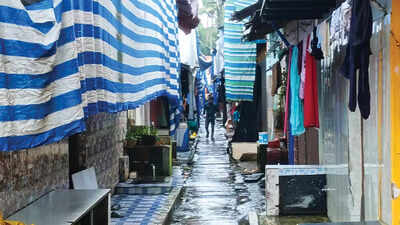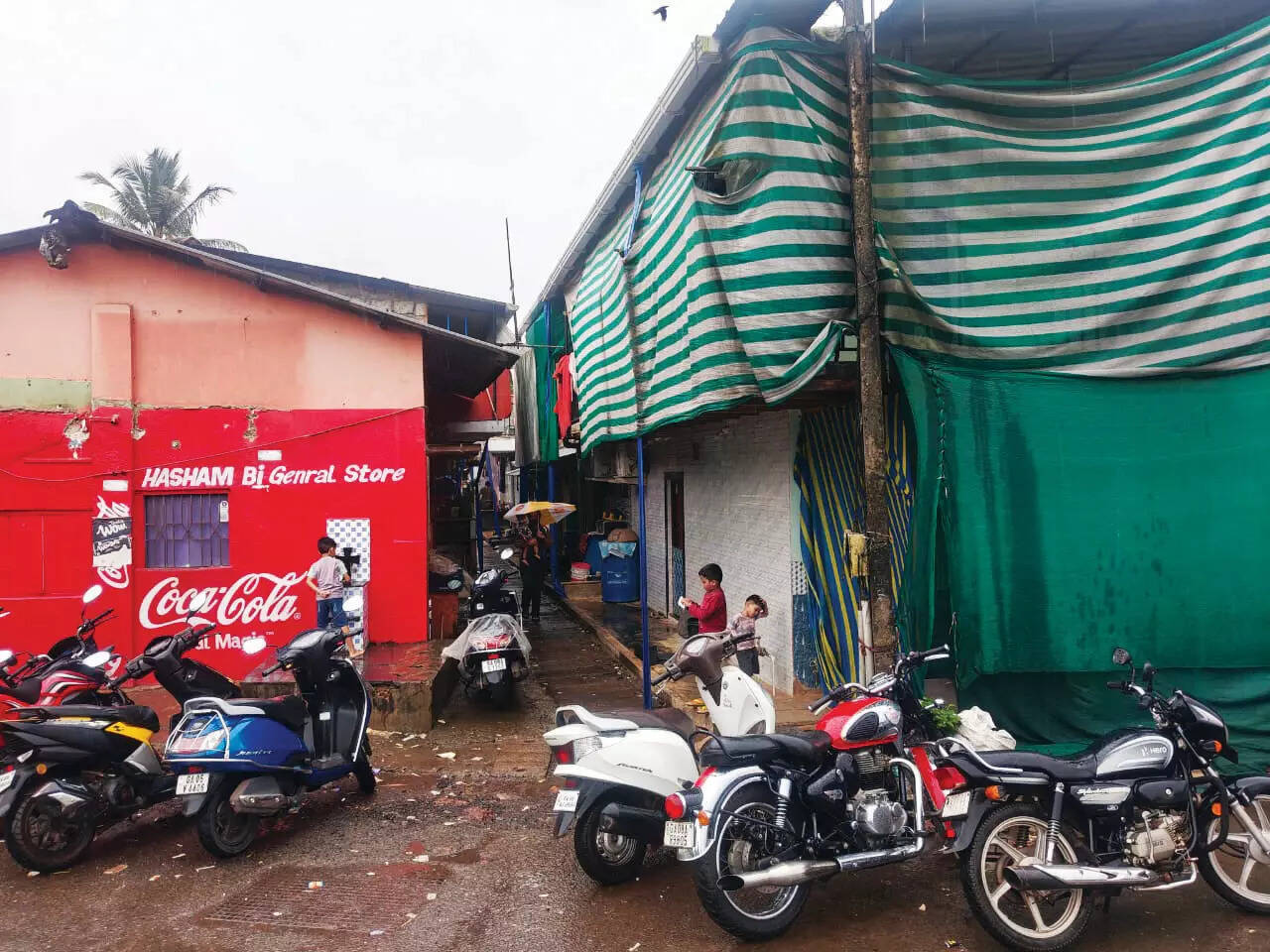ARTICLE AD BOX

Some well-to-do original beneficiaries no longer live in the slum but continue to profit from it by renting out their allocated spaces
The slum in Margao was originally 135 plots for the rehabilitation for 70-odd migrant families. Now, it houses nearly 1,500 registered voters. The slum has also undergone a name change: From ‘Babu Nagar’, chosen to honour a former deputy chief minister, to the neutral ‘Azad Nagar’

In Oct 2019, residents of a slum in Margao publicly renamed their settlement to honour a politician who had only recently been appointed the state’s deputy chief minister. In a sprawling slum, opposite Margao's Konkan Railway station, a group of enthusiastic supporters armed with hammers and fresh paint boards were busy conducting an impromptu renaming ceremony.
Down came the weathered sign reading ‘Azad Nagar’ – up went a gleaming new board proclaiming ‘Babu Nagar’.No govt notification authorised this change. No municipal resolution had been passed. Yet, overnight, an entire settlement had acquired a new identity, christened in honour of then deputy chief minister Manohar Ajgaonkar, affectionately known as "Babu". The timing was perfect – their political patron had only a few months ago broken away from MGP, joined BJP, and was appointed the state’s deputy chief minister.
Gratitude demanded visible expression, so thought the slum-dwellers, and the slum reclaimed its original identity – Babu Nagar. The slum was known as Babu Nagar from 1996 to 2006, before it was transformed into the supposedly apolitical Azad Nagar when political equations shifted. Now, with their benefactor back in office, the slum-dwellers were only too happy to pledge their political allegiance.

The emergence of this slum, and the tale of its switching loyalties, begins in 1993, when the construction of Konkan Railway’s Margao station necessitated the clearing of around 150 hutments.
The displaced families were provided alternative land temporarily opposite the railway station.In 1996, when Ajgaonkar championed the cause of the slum dwellers, grateful residents renamed their settlement Babu Nagar. The name stuck for a decade, serving as a constant reminder of political patronage.When Margao MLA Digambar Kamat defected from BJP to Congress in 2006, the settlement was diplomatically renamed Azad Nagar.
A new board was erected, proclaiming the area's supposedly apolitical identity. Life came full circle in 2019 when Ajgaonkar's supporters, emboldened by his elevation to become the state’s second-in-command after defecting back to BJP, brazenly re-erected boards declaring the area Babu Nagar once again.

What began as 135 plots for the rehabilitation for 70-odd migrant families has mushroomed into a settlement housing nearly 1,500 registered voters.The transformation is visible to anyone who visits the area today. Once a cramped locality, comprising tiny huts, it has evolved into a thriving commercial hub, with road-facing residential spaces doubling as shops and kiosks selling everything one can imagine. The slum has become self-sustaining, generating its own economy while remaining, technically, an illegal settlement on Konkan Railway land.One of the most disturbing aspects of the Azad Nagar phenomenon is the alleged systemic manipulation of electoral rolls.
Observers have repeatedly highlighted the extent of this electoral fraud. While nearly 1,000 people are enrolled as voters from the slum, only about half reside there permanently.

The rest, according to various sources, are ghost voters who migrate from their native places in Karnataka, specifically during election periods. They cast their votes and promptly disappear, returning to their actual homes across the state border.The economic transformation of Azad Nagar has been rapid. The area now hosts a bustling commercial centre, with most ground-floor spaces converted into shops and businesses. This economic activity, pointed out observers, creates stakeholders apart from the original displaced families – landlords, tenants, customers, and suppliers all develop vested interests in maintaining the status quo.Significantly, many of the original allottees, having improved their economic circumstances, have sold their spaces to others or converted them into rental properties.
Some well-to-do original beneficiaries no longer live in the slum but continue to profit from it by renting out their allocated spaces.Conscientious citizens have demanded that govt initiate an inquiry to establish the veracity of the occupants of Azad Nagar. The illegal huts pose a threat to peace and social security. Those found to be illegally occupying the land should be outright evicted, they said.




.png)
.png)
.png)
















 2 days ago
7
2 days ago
7








 English (US) ·
English (US) ·